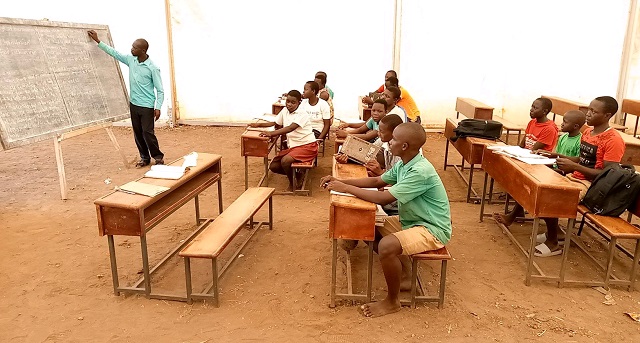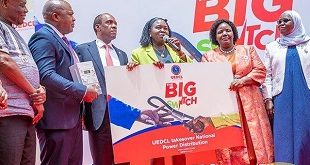
Bududa, Uganda | THE INDEPENDENT | The government has been sued for offering poor quality education to the children of Bududa.
The suit which was filed in the Equal Opportunities Tribunal by two lawyers, Najib Kasole and Abubaker Matanda, state that learners in Bududu have been marginalised by the government through low spending in the region.
According to the complainants, the mode through which government disburses capitation grants to schools has left those in Bududa in a poor state since the schools have low numbers of learners.
“The government allocates funds to schools in the UPE programme using a capitation grant. However, the allocation formula of this grant is inequitable as it does not consider the unique and special needs of schools in Bududa district.
Funds are disbursed proportionally to schools based on enrollment. This means that smaller schools with fewer students enrolled will get less funds compared to bigger schools with higher enrollment,” the suit reads in part.
They further argue that due to the way funds are disbursed, bigger schools in Kampala and Wakiso with more pupils get more money yet schools in far to reach areas like those in Bududa that often experience floods get less money.
Due to poor funding, the complainants argue that learners in Bududa have low literacy rates. They say this has led to poor performance at national examinations.
According to the complainants, despite the introduction of Universal Primary Education-UPE in 1996, the levels of literacy in Bududa are still low.
“The report by the Uganda Bureau of Statistics(UBOS) indicates the continued disparity in literacy and numeracy levels across the country,” states the suit. “The report reveals that whereas Kampala and Wakiso districts literacy and numeracy rates were higher than the national average of 72 percent, Bududa district registered one of the lowest literacy rates of less than 24 percent.”
They argue that the government’s inability to provide quality education to the children in Bududa contravenes their right to education as guaranteed in the Universal Declaration of Human Rights and the right to free access and equal education of good quality under Article 17 of the African Charter on Human and People’s Rights.
The complainants want the court to order the Ministry of Education and Sports to develop a national affirmative policy on UPE education that will see more money sent to the schools.
Kasole says they want the Equal Opportunities Commission to investigate the education inequalities in the district. He says they also want the government to employ affirmative action for teachers and schools in the region.
At the release of the 2018 Primary Leaving Examinations and the Uganda Certificate of Education by the Uganda National Examinations Board, ministry of education officials said they would carry out investigations into the poor performance of learners in the Eastern part of the country.
That year, 18 percent of the learners in Bududa failed compared to the national mean failure rate of 8.8 percent. UNEB attributed the failure of candidates to language deficiency, failure of candidates to understand and interpret questions and lack of school laboratories where learners could carry out practical lessons of science subjects.
*****
URN
 The Independent Uganda: You get the Truth we Pay the Price
The Independent Uganda: You get the Truth we Pay the Price



